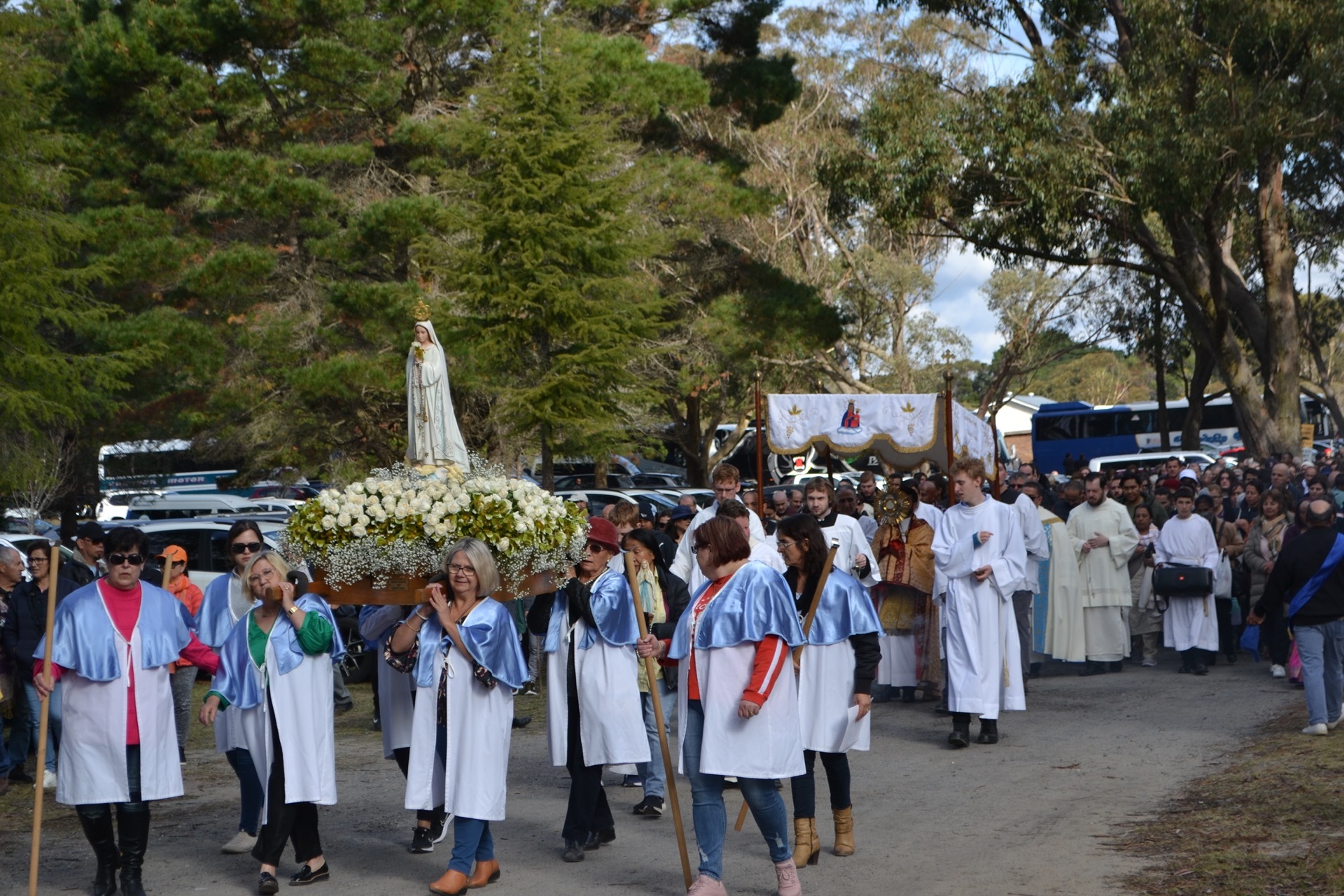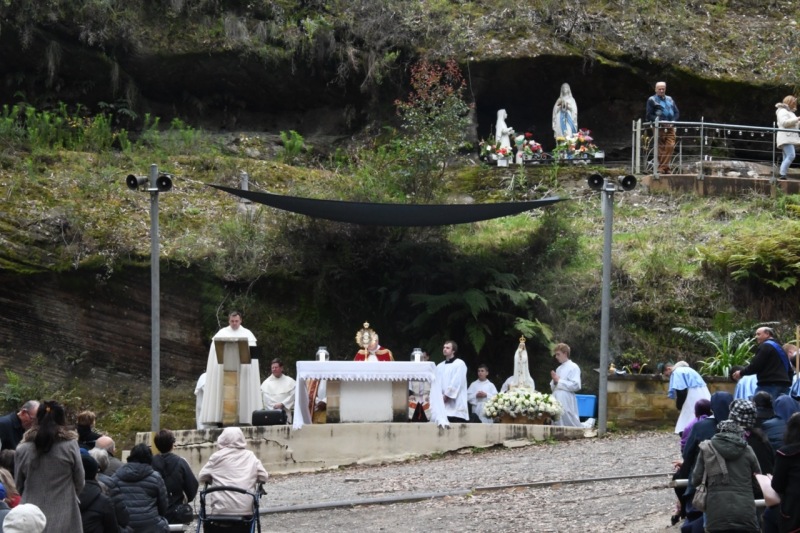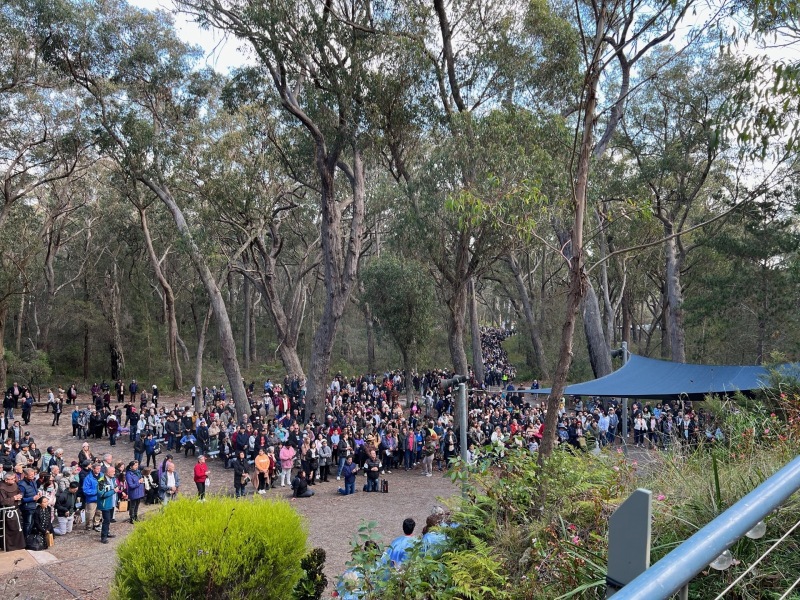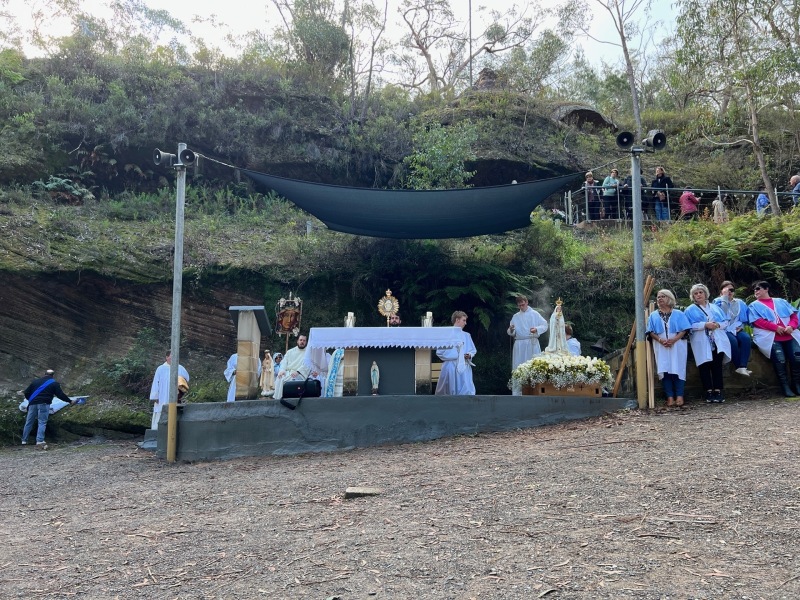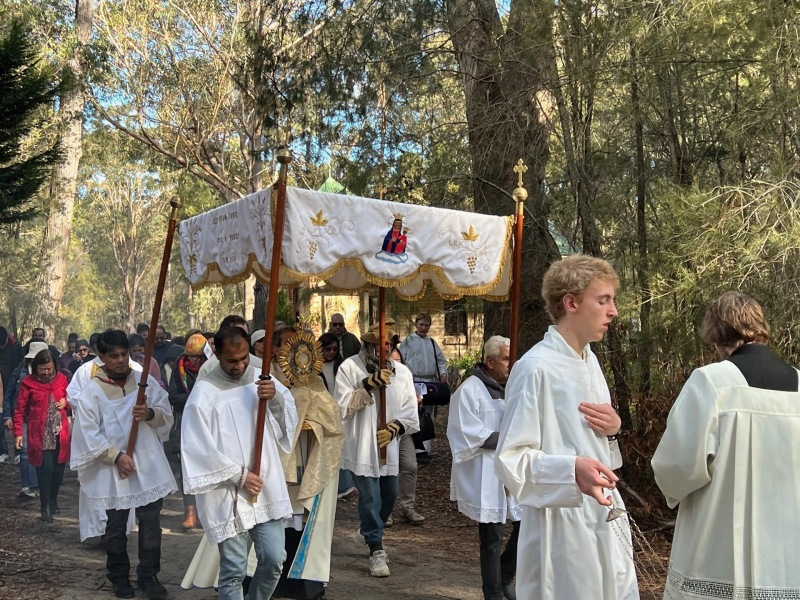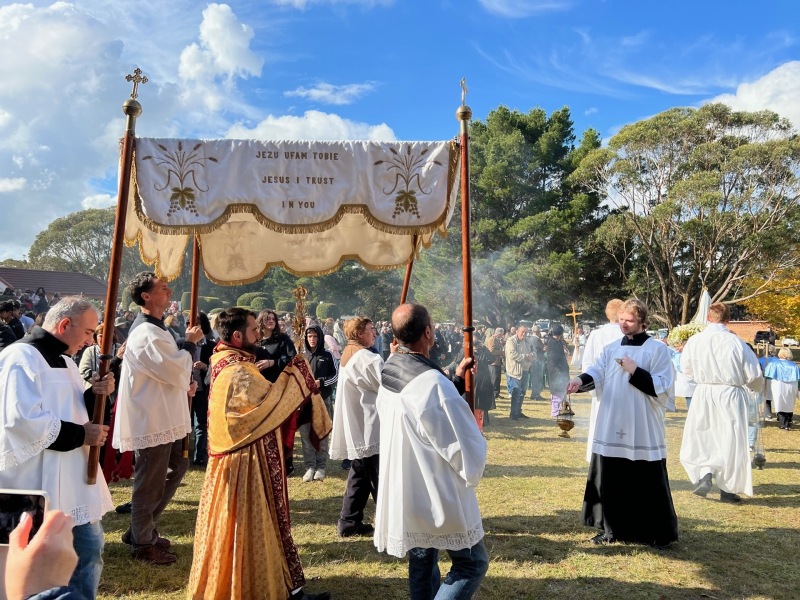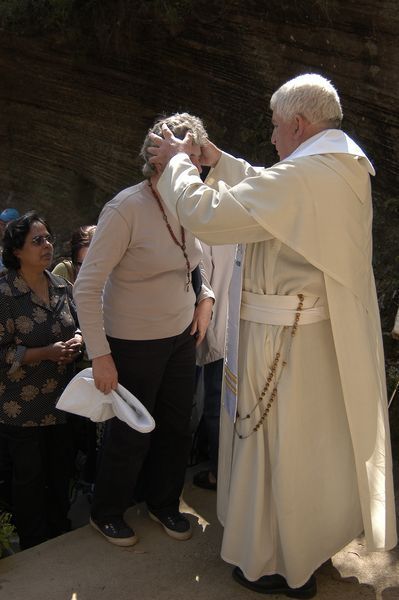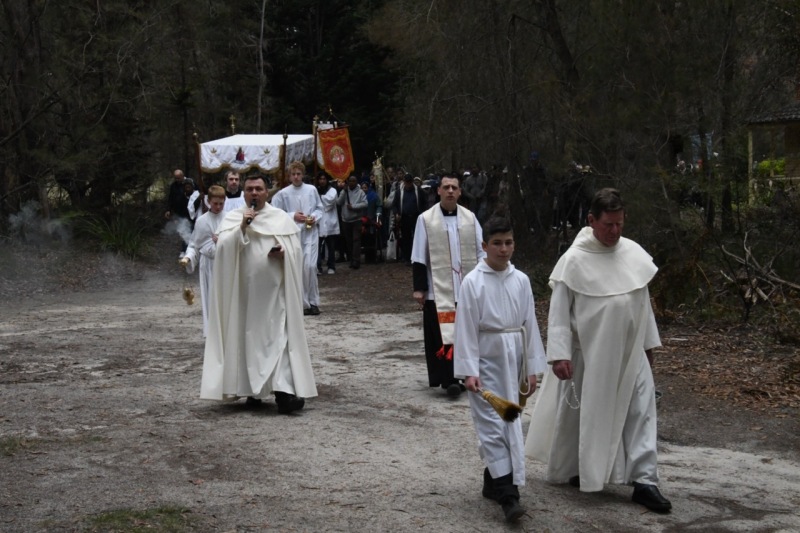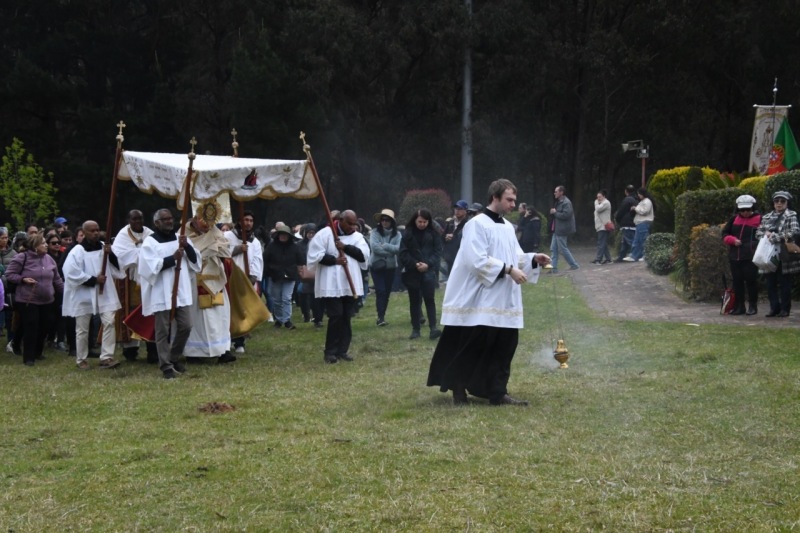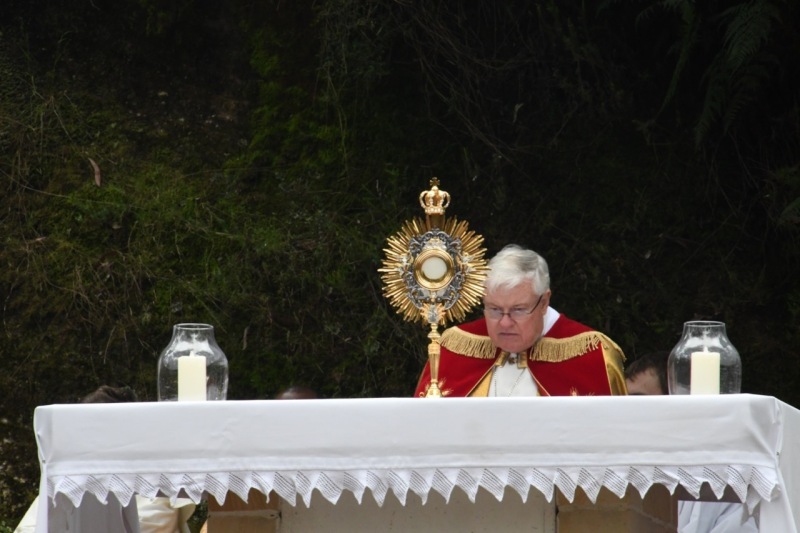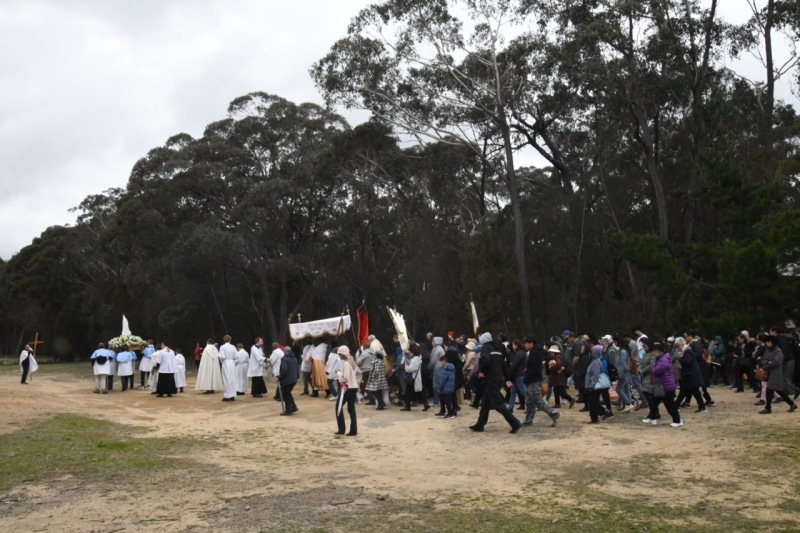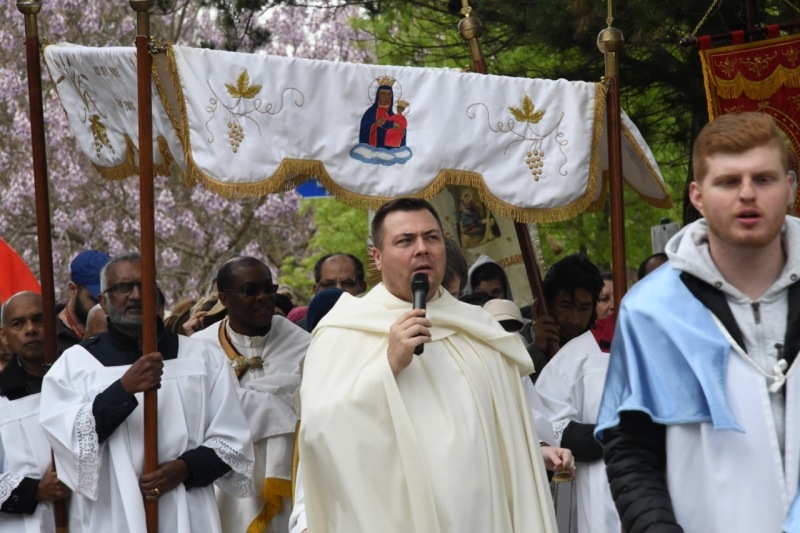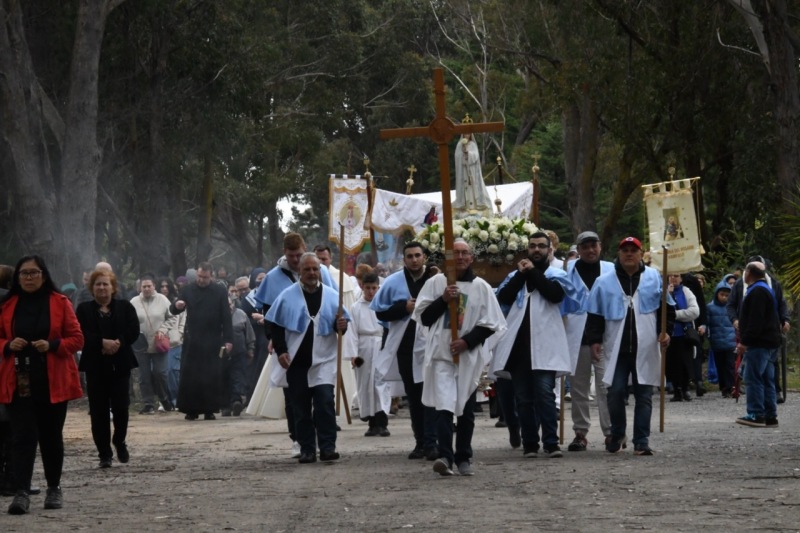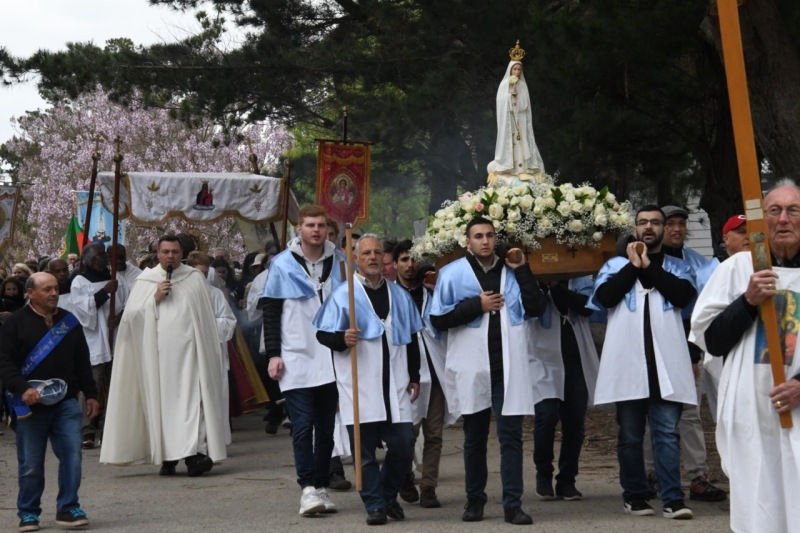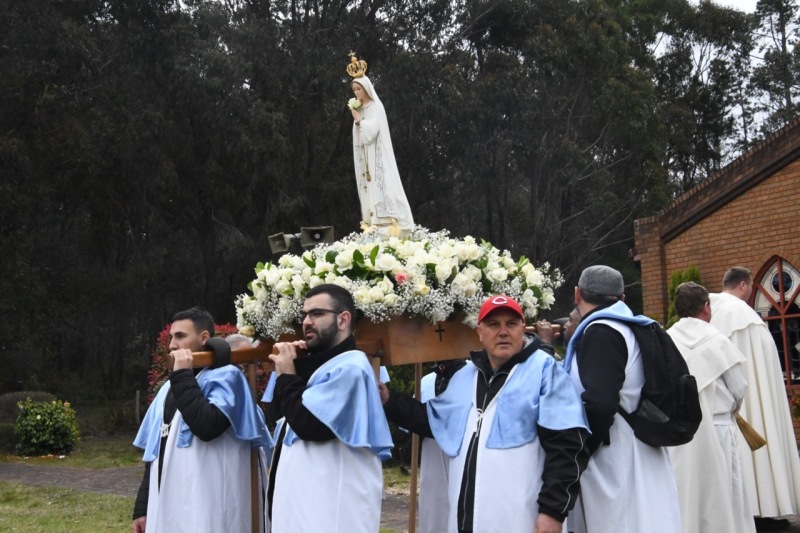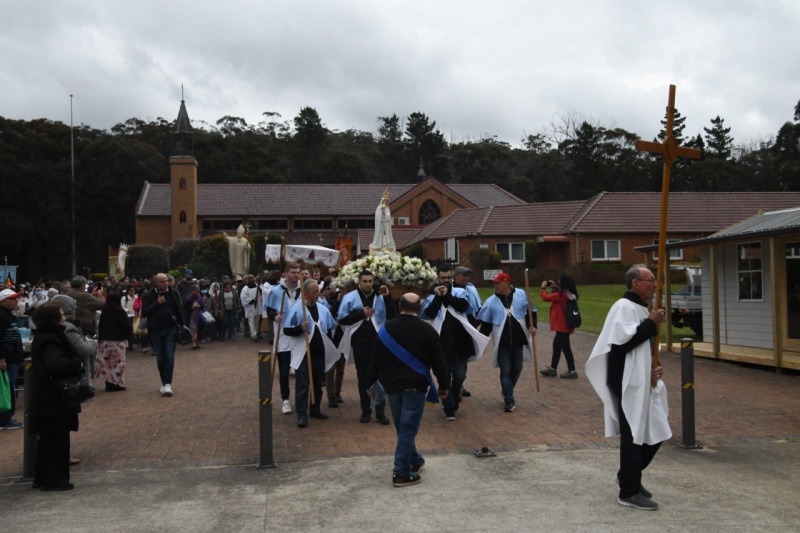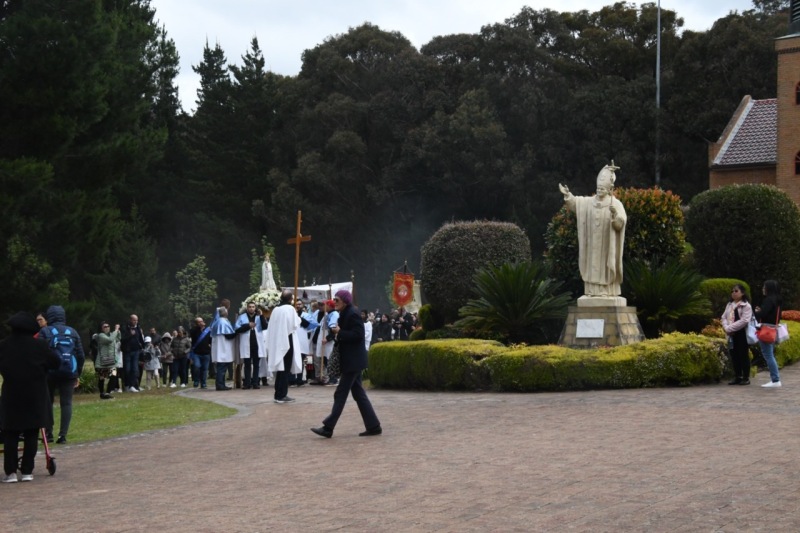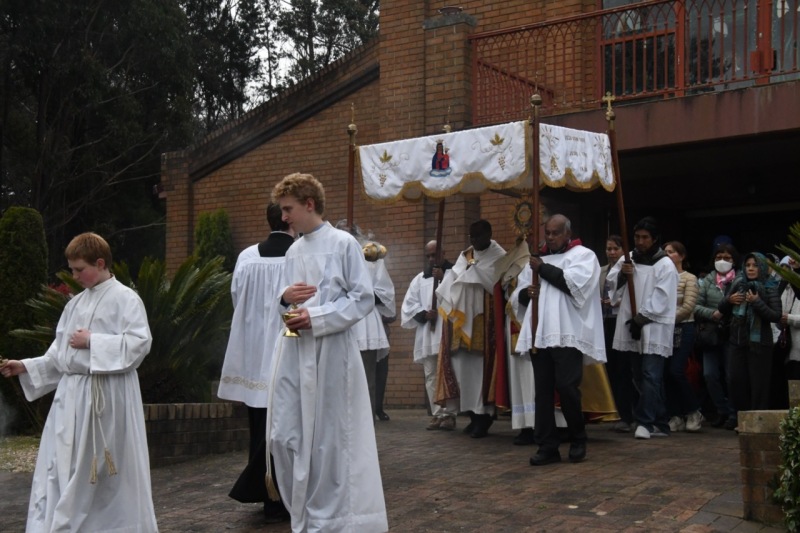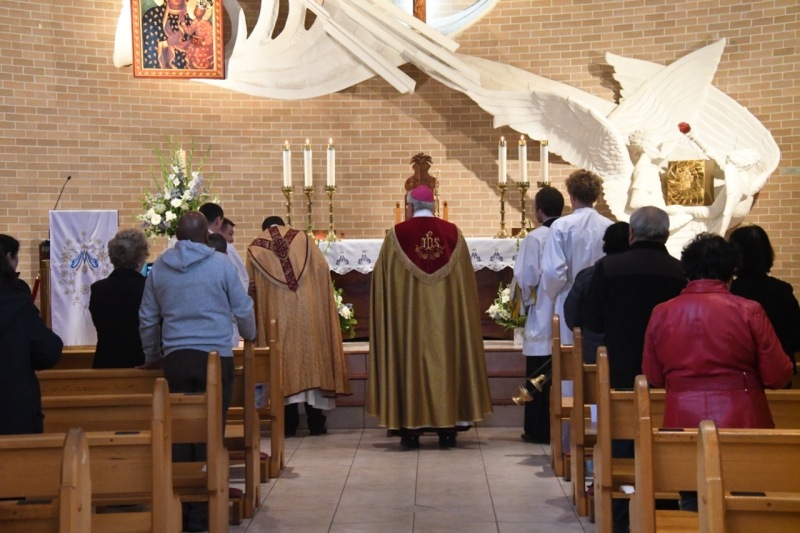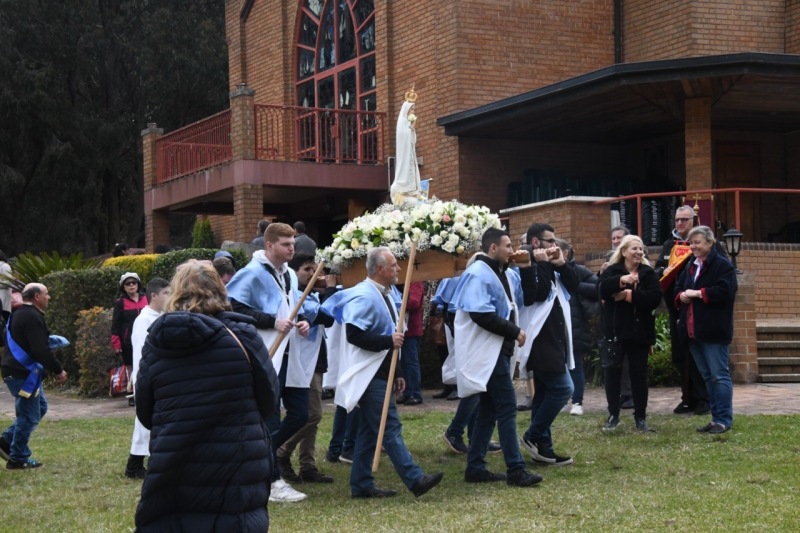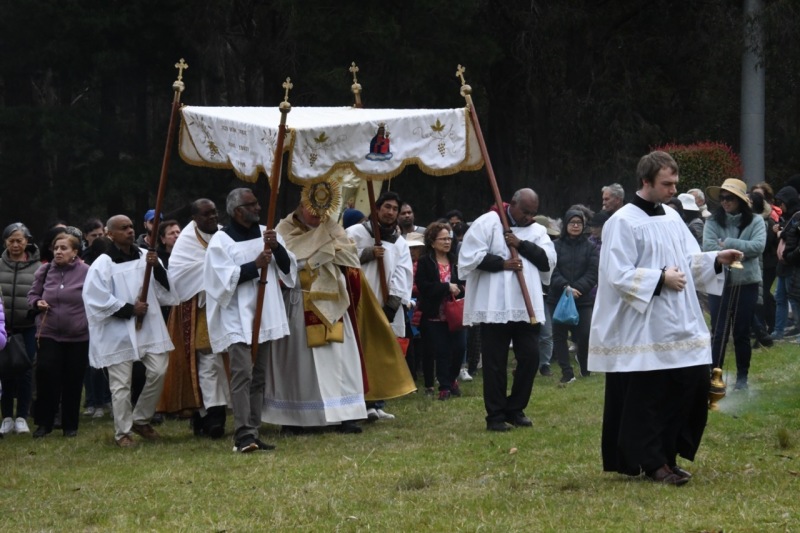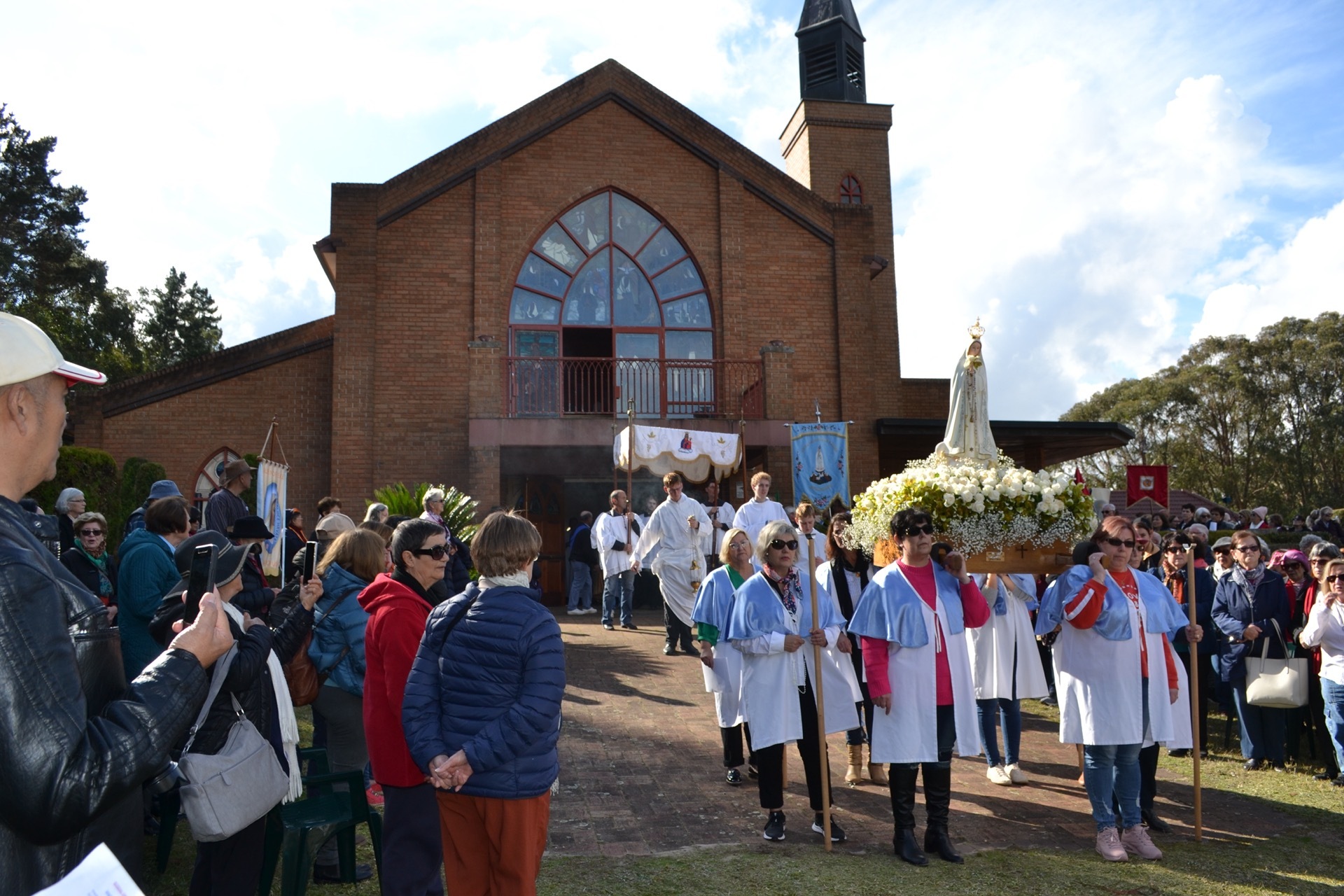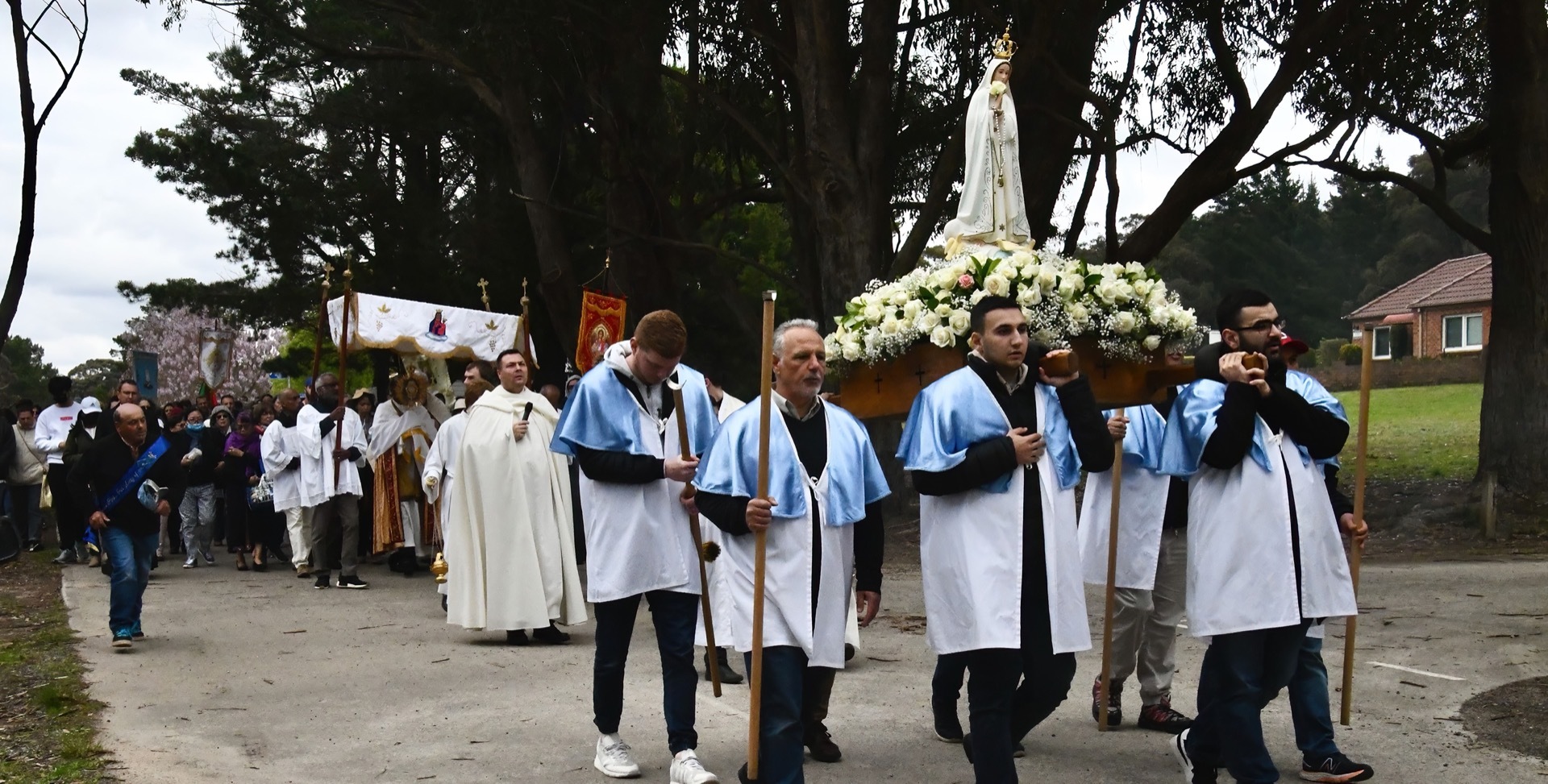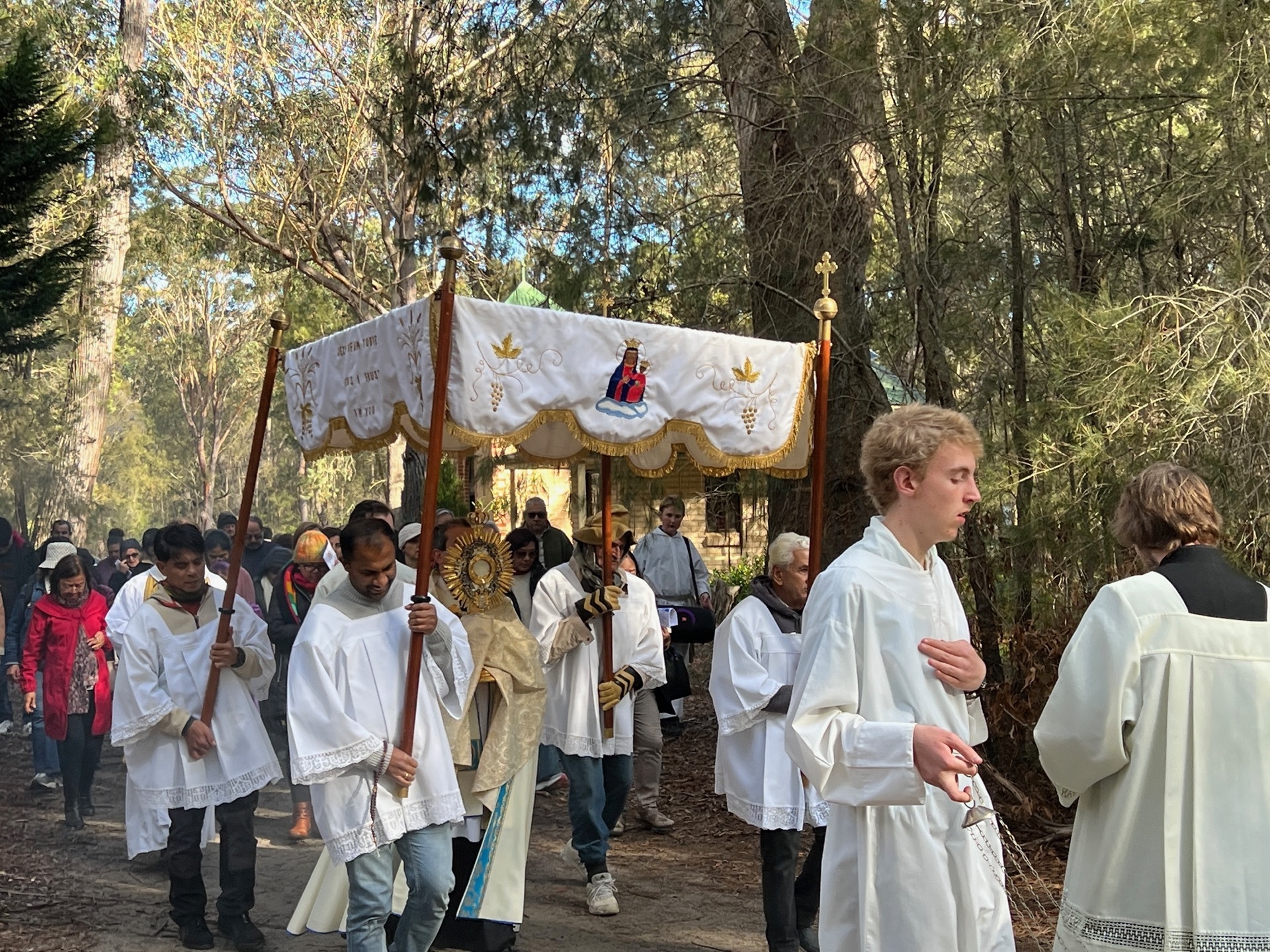As always, on the 13th of the Month, we will honour the Blessed Virgin Mary at the Shrine with our Fatima Day.
The main celebrant will be the Most Reverend Columba MacBeth-Green OSPPE DD, Bishop of the Diocese of Wilcannia-Forbes.
Being one of the main Fatima days, weather permitting Mass is planned to be celebrated outdoors, so please remember to bring along chairs to sit on, as there will only be a limited amount of charts provided along with a hat or some form of shade and of course water to stay hydrated. Our Lady of Fatima, pray for us.
The program is as follows:
- 10 am Exposition of the Blessed Sacrament & Confessions
- 10:30 am Rosary
- 11 am Solemn Mass
- 12 noon Lunch
- 1:30 pm Eucharistic Procession to the Gotto while reciting the Rosary.
- 2 pm Prayers and Devotions at the Gotto, and blessing of pilgrims.

